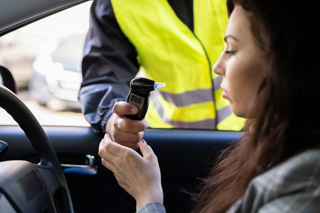A ban on the use of hands-free phones while driving would have a massive financial impact on business, a survey suggests.
More than two-thirds (68%) of respondents believe a ban would reduce their company’s turnover by more than 25%, while a third (36.9%) said they would expect to see revenues cut in half.
However, more than 60% acknowledge that the use of a hands-free device while driving does distract drivers, with one in five (21.4%) agreeing that they contribute to serious accidents.
Road safety charity Brake called for hands-free phones to be banned in November, but this latest research suggests business is becoming increasingly dependent on the technology.
“It is very worrying to see that, despite fleet operators accepting that hands-free devices distract drivers, there is still unwillingness to ban the use of such devices,” said Laura Woods, from Brake.
“International research shows that drivers who talk on a phone, whether hand-held or hands-free, are four times more likely to be in a crash that causes injury.
“It is vital that fleet operators take action to protect their employees as well as other road users from the risk of causing death or serious injury by driving distracted.”
The survey, which was carried out by TrackCompare in association with Fleet News, questioned more than 100 fleet operators.
Kjell Anderton, a director of TrackCompare, said: “Feet operators are being pulled in two directions. Safety must always come first. But it should not be overlooked that fleet operators rely on in-vehicle communications for a range of efficiency and productivity improvements.”
Research has shown that driver reaction times have been found to be 30% slower while using a hands-free phone than driving with a blood alcohol level of 80mg alcohol per 100ml blood – the legal limit – and nearly 50% slower than driving under normal conditions.
Many people have also questioned whether it is rational to ban hand-held phones when it is impossible to ban conversations with passengers.
However, research comparing the safety of drivers on phones and drivers with chatty passengers found the drivers on phones had lower reaction times and speed control. The research also found that the drivers with chatty passengers performed nearly as safely in the research as drivers studied who had silent passengers.
Conversation suppression, the tendency for a passenger to slow their rate of conversation as the driver approaches a hazard, was a crucial factor.
More follows on page two...























mark Gosling - 31/07/2014 09:03
i use hands free in my vehicle( personal), i press a button to answer or refuse a call, it is not a distraction if you don't allow it to be.